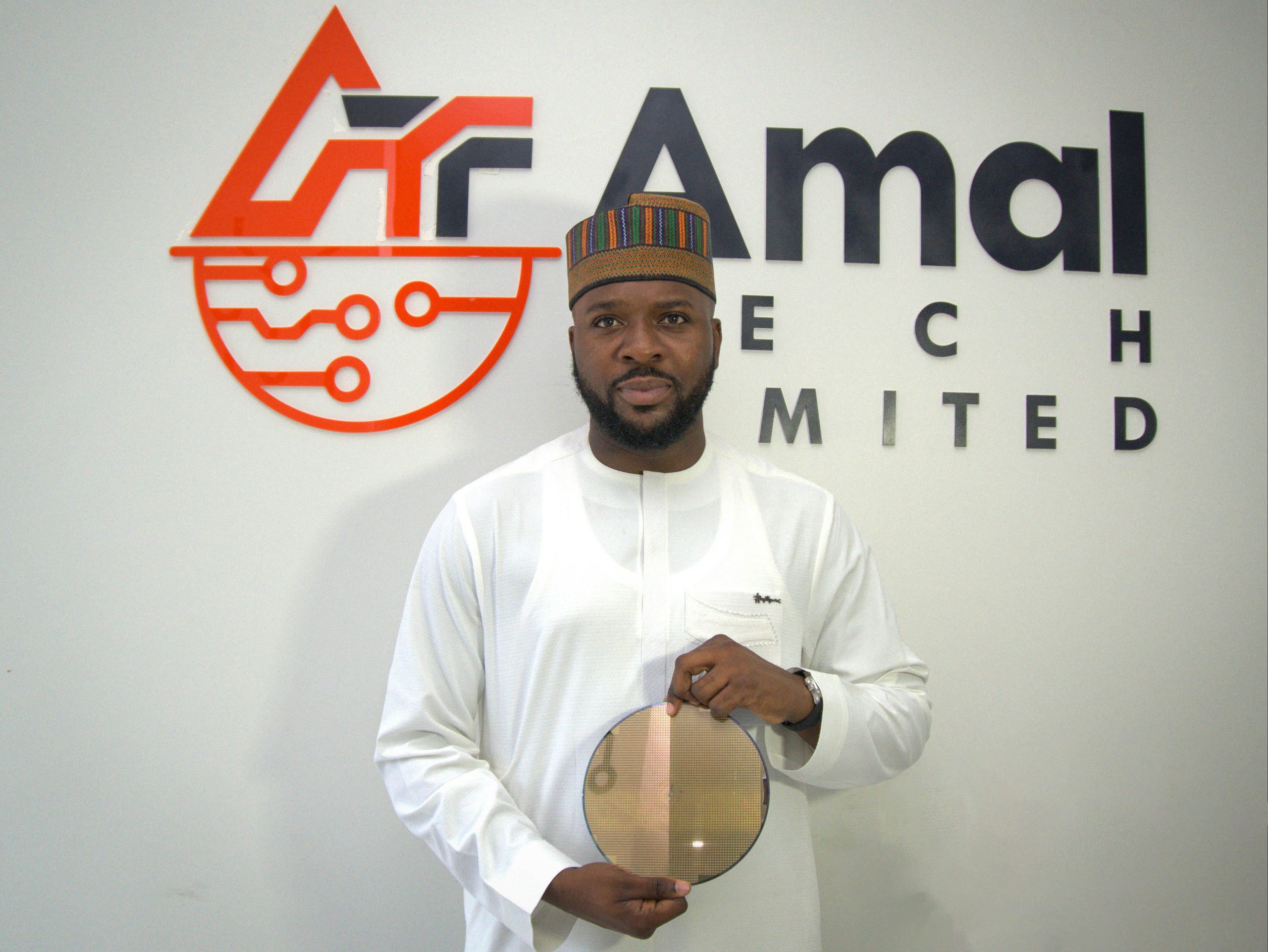Nigeria's Ambitious Tech Leap: Forging a Path in the Global Silicon Race

In the rapidly evolving, technology-driven global landscape, semiconductors serve as the fundamental components powering an array of devices from smartphones to electric vehicles and renewable energy systems. With global demand for these essential microchips projected to exceed $1.2 trillion by 2030, a critical international race for dominance in the semiconductor industry has intensified. Nigeria is now strategically positioning itself to enter this crucial competition, aiming to establish itself as a significant semiconductor hub for Africa.
Nigeria's emergence in this sector is not merely an aspiration but a necessity for the African continent. The continent's burgeoning digital economy, anticipated to reach $712 billion by 2050, coupled with an expanding tech ecosystem and a youthful population, necessitates localized technological solutions. This approach aims to diminish reliance on imports and fortify supply chains against geopolitical vulnerabilities. With Nigeria's GDP estimated at $243 billion in 2024 and over 60% of its population of 220 million being under 25, the country is uniquely positioned to address a continental need and elevate Africa's standing in the global chip economy. Establishing Nigeria as a center for semiconductor innovation and manufacturing is envisioned as a pathway to building a sustainable ecosystem that fosters innovation, economic growth, and technological sovereignty across Africa.
The current global semiconductor industry is highly concentrated, with Taiwan, South Korea, and the United States accounting for over 70% of global manufacturing capacity. This concentration leaves Africa heavily dependent on external suppliers, exposing the continent to supply chain disruptions, inflated costs, and restricted access to vital technology. Nigeria, with its vast market, dynamic tech ecosystem, and talented young workforce, possesses the distinct potential to alter this narrative.
The vision outlined is to develop indigenous semiconductor capabilities that not only satisfy local and African needs but also compete effectively on the global stage. Amal Semiconductor Manufacturing Company Limited (ASMC), led by CEO and Founder Shehu Tijjani Abdullahi, has established a fabless ecosystem and is pioneering Africa’s first assembly, testing, and packaging (ATP) of various chip types, including QFN, QFP, and CSP. Furthermore, ASMC is investing significantly in research and development, talent cultivation, and strategic partnerships to construct the first foundry in Africa. This foundry will be specifically tailored to address Africa’s unique challenges, focusing on energy efficiency, affordability, and durability within diverse environmental conditions.
Achieving Nigeria's ambition to become a semiconductor hub requires extensive collaboration among government entities, industry leaders, academic institutions, and investors. Efforts are underway to engage policymakers to cultivate an enabling environment that supports innovation, attracts investment, and incentivizes local manufacturing. Concurrently, partnerships with universities and technical institutions are being forged to nurture the next generation of engineers and designers critical for propelling this industry forward.
The benefits of a thriving semiconductor sector extend far beyond technological advancement. It promises to diversify Nigeria’s economy, generate high-value employment opportunities, strengthen supply chains, and significantly boost exports. Crucially, it will empower Africa to control its digital future, reducing its dependence on external suppliers and fostering resilience against global uncertainties. This strategic initiative aligns with a broader continental imperative, focusing not just on Nigerian semiconductor development but on transforming Africa's largest economy into a technology exporter, moving from dependency to self-sufficiency. As Africa accelerates its digital transformation, the demand for chips will grow exponentially, and Nigeria's leadership in semiconductor innovation can serve as a catalyst for regional collaboration, integrating African markets and building a robust technology ecosystem that benefits the entire continent. The journey represents a commitment to positioning Nigeria as a global player in the chip economy, signifying that the 'race for Silicon Africa is on, and Nigeria is ready to lead.'
You may also like...
Nigerian Football History Made: Akor Adams' Sensational Super Eagles Debut Goal
)
Akor Adams made a dream debut for the Super Eagles, scoring a crucial late winner against Lesotho in a 2026 World Cup qu...
Aces Reign Supreme! Las Vegas Clinches Third Consecutive WNBA Championship
)
The Las Vegas Aces have secured their place in WNBA history, sweeping the Phoenix Mercury to claim their third champions...
Channing Tatum's 'Roofman' Dominates Headlines, Sparks Box Office Buzz and Viral Marketing Frenzy

Channing Tatum discusses his latest film 'Roofman,' inspired by the true story of Jeffrey Manchester, highlighting the f...
Mabifhi Ignites Dance Fever in Botswana Competition

Botswana's Malebogo 'Lebo M' Mabifhi is in Los Angeles for the Redbull Dance Your Style World Final, representing her co...
Angola's Sonangol Fuels Future with Over 300 Scholarships

Angola's National Fuel Society (SONANGOL) has awarded 315 scholarships for 2024 and 2025 to academically meritorious you...
Victoria Beckham's 'True Feelings' Exposed: Mask Slips Amidst Brooklyn Feud

Victoria Beckham opens up about the immense struggles she faced with her fashion empire and a past eating disorder in he...
Royal Rift Widens: Prince Harry's Displeasure Over Meghan Markle's Latest Move Revealed

Meghan Markle's recent video from Paris, featuring a location tragically linked to Princess Diana's death, has ignited s...
Bella Shmurda Unveils Raw Journey Of Survival And Grace In New Track ‘My G’

Afrobeats star Bella Shmurda's new song 'My G' is a soulful exploration of friendship, loyalty, and gratitude, offering ...



